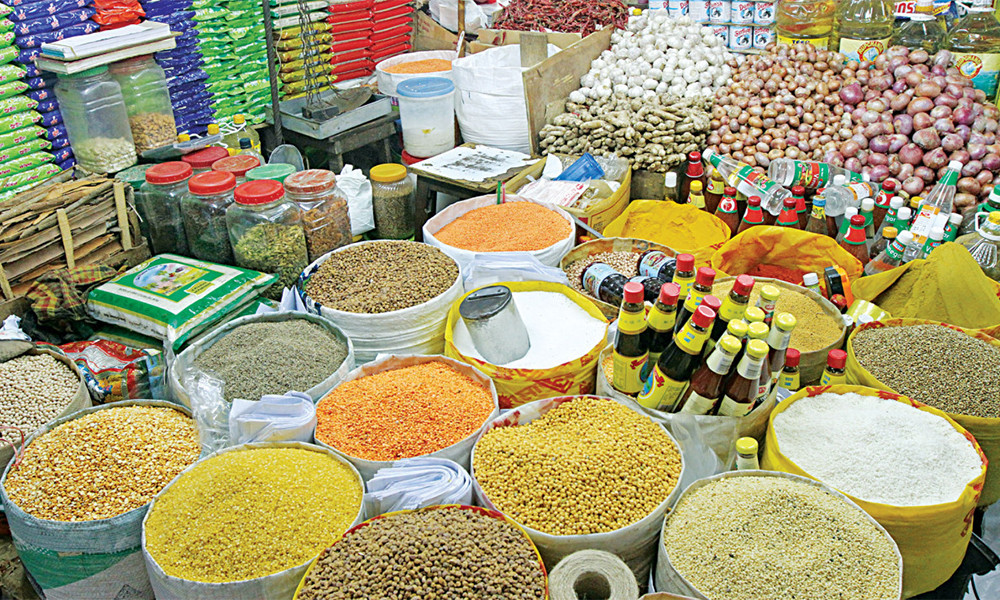Skyrocketing commodity prices push low-income families to brink
•Except for papaya, no vegetable is available below Tk 70 per kg •Supply shortages, syndicates, and lack of market monitoring blamed
Daily Sun Report, Dhaka
Published: 19 Sep 2025

Photo : Collected
The skyrocketing prices of daily essentials in Dhaka’s markets have left consumers in distress. From fish, meat, eggs, and lentils to almost all vegetables, prices have gone beyond the reach of ordinary people. Despite cutting costs, families are struggling to balance income and expenses, with low-income groups suffering the most.
Over the past two months, the prices of local onions, lentils, eggs, fish, and vegetables have surged abnormally. According to Trading Corporation of Bangladesh (TCB) data, local onions are selling for Tk 75–80 per kg, farm eggs at Tk 135–145 per dozen, local lentils at Tk 160–180 per kg, bitter gourd at Tk 100–120, okra and pointed gourd at Tk 80–100, yardlong beans at Tk 100–120, cucumber at Tk 80, ridge gourd at Tk 80–100, bottle gourd at Tk 90–100, snake gourd at Tk 80, new beans at Tk 220–240, and green chilies at Tk 180–200 per kg. The cheapest vegetable is papaya, still priced at Tk 35–40 per kg. Potatoes are selling at Tk 25–30 per kg.
Such conditions have left consumers frustrated. Helal Uddin, a shopper at Mohakhali kitchen market, said: "There is no government monitoring, and that’s why the market is in chaos. Buying fish or meat now requires several thousand taka. Even small fish are unaffordable. Limited-income people cannot manage their families without taking loans every month."
Akhtar Hossain, another customer in Mirpur’s Kazipara, said: "Earlier, when fish or meat prices went up, we could rely on eggs and vegetables. But now even those are beyond reach. Where will people turn? The government must intervene urgently."
Vendors, however, blame crop damage caused by continuous rains. Harun, a vegetable trader in Badda, said: "We are forced to buy vegetables at nearly double prices in the wholesale market. That’s why retail prices are so high. As prices rise, consumers are buying less, and we too are facing losses."
Market experts argue that natural disasters and supply shortages alone are not to blame; syndicates and lack of monitoring play a major role. Unscrupulous traders are exploiting the absence of oversight to hike prices unfairly, burdening consumers.
Md. Khalilur Rahman Sajal, Executive Director of Consumers Association “Vokta”, said: "Consumers have become so tolerant that they now accept these abnormal prices as fate. But if regulatory bodies intervened regularly, the situation would not be this dire. For example, eggplants sold at Tk 60–65 in Narsingdi are sold at Tk 150–180 in Dhaka. At every step of the supply chain, both ethical and unethical value additions are pushing up prices."
He added that even staple rice was kept overpriced during the harvest season, reflecting the government’s failure in market regulation. Unless there is consistent intervention, consumers will continue to suffer helplessly.
Former Bangladesh Bank Chief Economist Dr. Mustafa K Mujeri said: "Unless food price inflation is brought under control, people’s hardships will not ease. Ensuring transparency in market management is crucial. Breaking wholesale monopolies, reducing import duties on food, and strengthening direct marketing channels for agricultural produce are necessary. Otherwise, food prices will remain beyond the reach of ordinary people."

